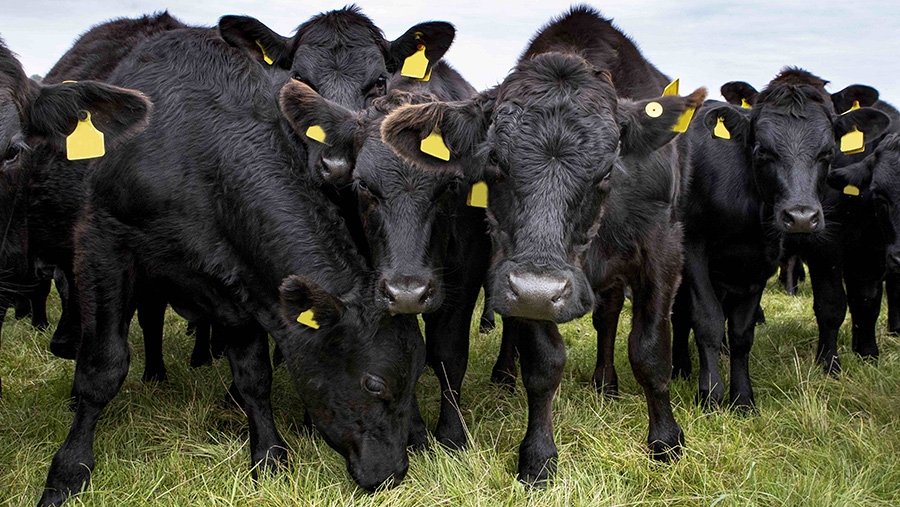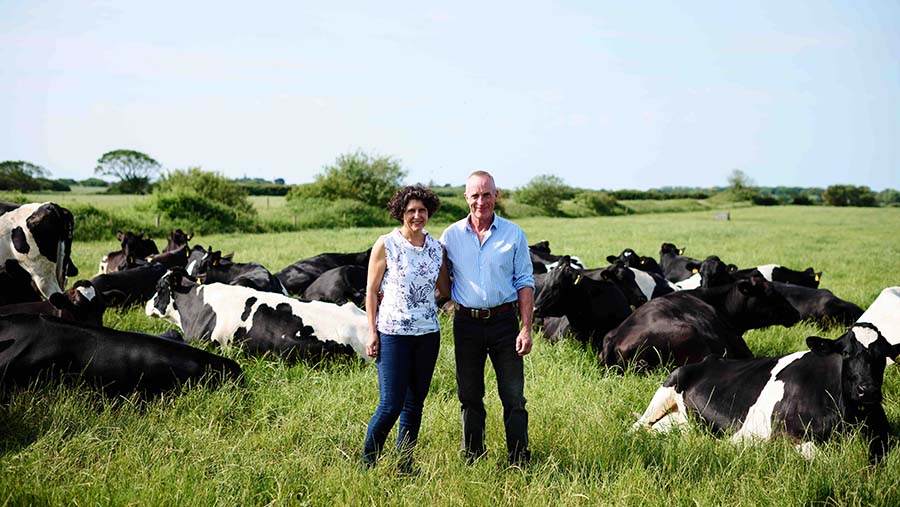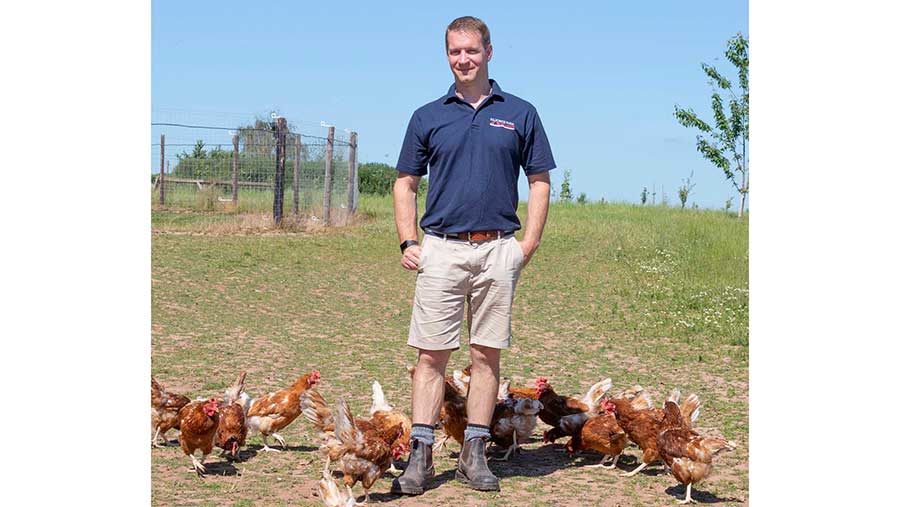Advertiser content
M&S: Reducing carbon, improving nature
In 2021, M&S reset its Plan A programme with a new singular focus to become net zero across its entire supply chain and products by 2040, a full 10 years ahead of the government’s UK-wide strategy.
As an own brand retailer, the business is working with its 7,000 farmers across the UK to understand the opportunities and support required to reduce the carbon impact of its products, while also ensuring the highest quality and welfare.
Alongside this, M&S is working with its farmers to support environmental enrichment and nature friendly farming.
Why reset Plan A?
M&S believe there is no plan B when it comes to the planet, and so 14 years ago launched Plan A. 97% of Marks & Spencer’s carbon impact comes from ‘Scope 3’ emissions.
These Scope 3 emissions include how suppliers – including farms – source, make and move products.
As an interim target, the business has pledged to reduce emissions by 34% from its 2015 baseline by 2025, just a few years away. So how will M&S achieve these stretching targets?
Collaboration is critical
“M&S is a long-term supporter of British agriculture, and we believe strongly that meat and dairy play a valuable role in a balanced diet,” says Steve McLean, head of Agriculture & Fisheries at M&S Food.
“Farming is changing, but with change comes opportunity.
“Our customers are increasingly expecting the products they buy from us to be produced with a decreasing carbon footprint as well as being high quality and high welfare.
“The long-lasting relationships we have with our partners, from farms to factories, will allow us to support our supply base on this exciting journey.”
Case study: Pathway Farming
One example of this collaborative approach is M&S’ work with Pathway Farming to establish an integrated supply chain focussing on producing beef with a lower environmental impact and a better eating experience.
Pathway and Cogent have invested in developing unique M&S bulls, currently all Aberdeen Angus, which have a focus on feed efficiency and eating quality.
Calves are reared in purpose-built high tech, calf rearing facilities under the care of one vet, before being grazed and finished on family farms.
The system allows for complete transparency throughout the supply chain with cattle remaining under the ownership of Pathway Farming throughout.
Farming with Nature
Alongside reducing carbon impact, an important part of the current agriculture transition is ensuring that soil, water and nature is managed for the benefit of future generations.
Here, M&S is working with farmers across its supply base to help them become more resilient to the biggest environmental and climate change challenges they face.
As part of this, a network of 18 M&S Select Farms are collecting data on their environmental impact and working with advisors to identify actions to further enhance the environment on their individual farm.
Their experiences are then being shared with other M&S farmers in their sector.
Chalder Farm, run by Chris and Caroline Spiby, is one of two M&S dairy farms taking part in the initiative.
Situated on a coastal plain and bordering an RSPB nature reserve, the farm already has a network of native grass margins around a lot of the fields to buffer ditches and hedges, providing winter food and cover for small mammals.
The next step is to enhance some of these buffer strips with native flowers to create insect-rich areas across the farm that will benefit grey partridge, yellowhammer and other farmland birds.
The farm is also looking at how it can link up some of these habitat areas to create continuous wildlife corridors across the farm, right to the nature reserve.
M&S free range egg producer, James Powell, in the Wye Valley is looking to enhance areas of his chicken range with wildflowers and more species-diverse grass leys to provide habitat for pollinators as well as increase carbon sequestration and water infiltration.
The M&S Indicator Farm Project is supporting James and his team to build on the work being undertaken through Countryside Stewardship to further enhance existing habitat mosaics.
Having undertaken detailed soil health assessments, the nutrient management regime at the farm is being changed to prevent phosphate build up in arable soils.
James is also looking to activate soil biology and increase organic matter by a variety of measures including reduced tillage and growing species-diverse catch and cover crops.
Provided by
M&S backs British farming.
We know our customers want to know where their food comes from and are increasingly concerned around ethical sourcing and the sustainability of food. That’s why Marks & Spencer works with more than 7,000 farmers across the UK that we know and trust to source our products with the utmost care.
When it comes to supporting British farming, our commitment has always been based on the great work being done every day on farms across the country – not just in terms of high production standards, but also in providing wildlife habitats, looking after soil health, and ensuring the land is managed for the benefit of future generations.
To support this further, M&S has started a new five year 'Farming with Nature' collaborative programme to help its Select Farmers become more resilient to the biggest environmental challenges they face – spanning climate change, biodiversity, soil health and water usage.
Find out more at marksandspencer.com




